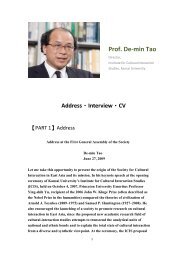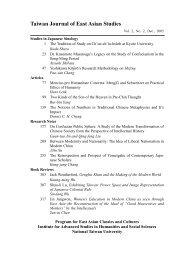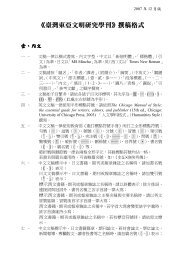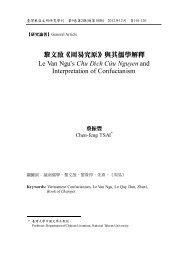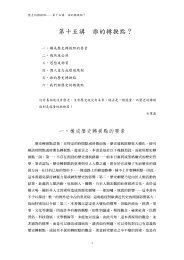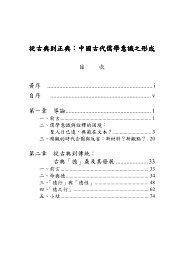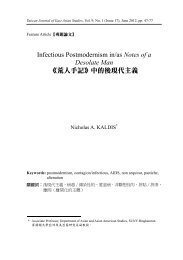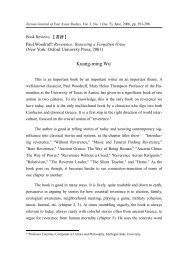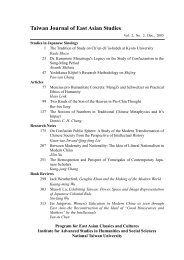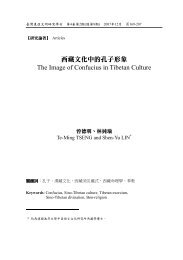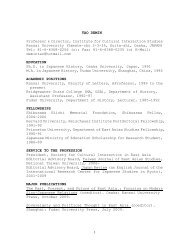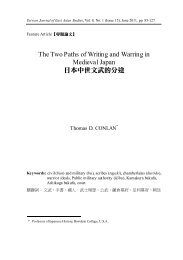臺灣東亞文明研究學刊 - 東亞經典與文化研究計畫 - 國立臺灣大學
臺灣東亞文明研究學刊 - 東亞經典與文化研究計畫 - 國立臺灣大學
臺灣東亞文明研究學刊 - 東亞經典與文化研究計畫 - 國立臺灣大學
Create successful ePaper yourself
Turn your PDF publications into a flip-book with our unique Google optimized e-Paper software.
160 Taiwan Journal of East Asian Studies, Vol. 4, No. 2 (Iss. 8), Dec., 2007<br />
from the collapse of Roman civilization, progressing from "the original simplicity<br />
of their pastoral manners" to refinement, "they began to acquire a relish for some of<br />
the luxuries of India." 21 As a true Presbyterian moderate and fervent advocate of<br />
commerce, Robertson emphatically urged his readers to pay due respect to Hindu<br />
civilization. They should do no less than Akbar, who had been called "The Guardian<br />
of Mankind" because of his willingness to inquire into Hindus' manners and his<br />
determination that they were "no less entitled to protection and favour than his other<br />
subjects," in spite of their "colour [……], their effeminate appearance, their<br />
unwarlike spirit, the wild extravagance of their religious tenets and ceremonies." 22<br />
Like Akbar, the British state had a role to play in a country so dangerously<br />
"effeminate" and "unwarlike."<br />
Hindu Effeminacy and the Justification of the Napoleonic Wars<br />
Robertson's comments had been prompted by French agitation in India. The<br />
revolutionary aftermath extended well beyond the European continent and one<br />
encounters many echoes of the Robertsonian imperialist sentiment in works that<br />
chronicled or were sparked by the Napoleonic wars. Several Frenchmen who had<br />
returned from waging war in India wrote histories of the country imbued with vivid<br />
descriptions of the differences between Muslim and Hindus—differences brought to<br />
the fore in wartime.<br />
The imperialist struggle over India ramified along religious lines, as the British<br />
allied themselves with Hindus and the French with Muslims. For example, Bengal,<br />
the great seat of the British Empire in India, was primarily inhabited by Hindus.<br />
Quite concerned that the local people existed in a childlike state of dependence, the<br />
21 Ibid., p. 203.<br />
22 Ibid., pp. 332-333.<br />
xii



